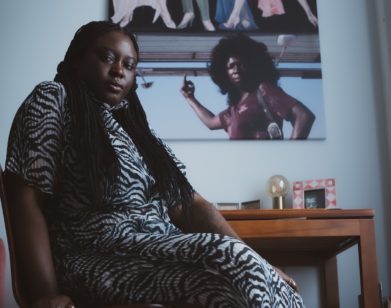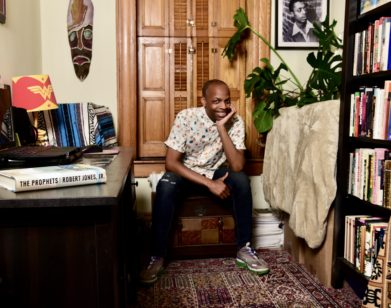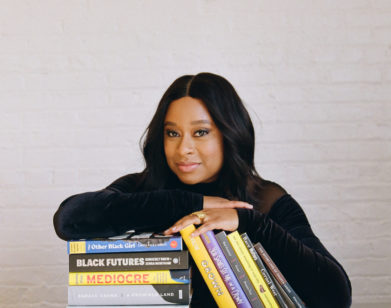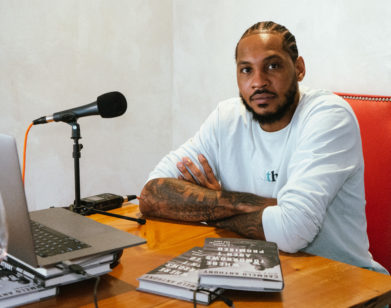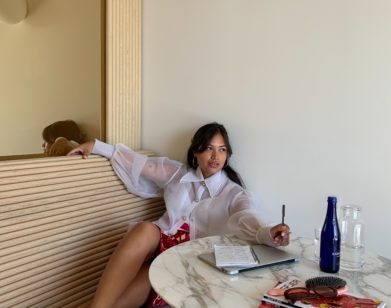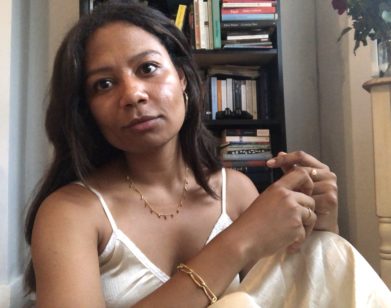Rough DRAFT
Helen Oyeyemi on Why Writing is Like “Inner Space Travel”
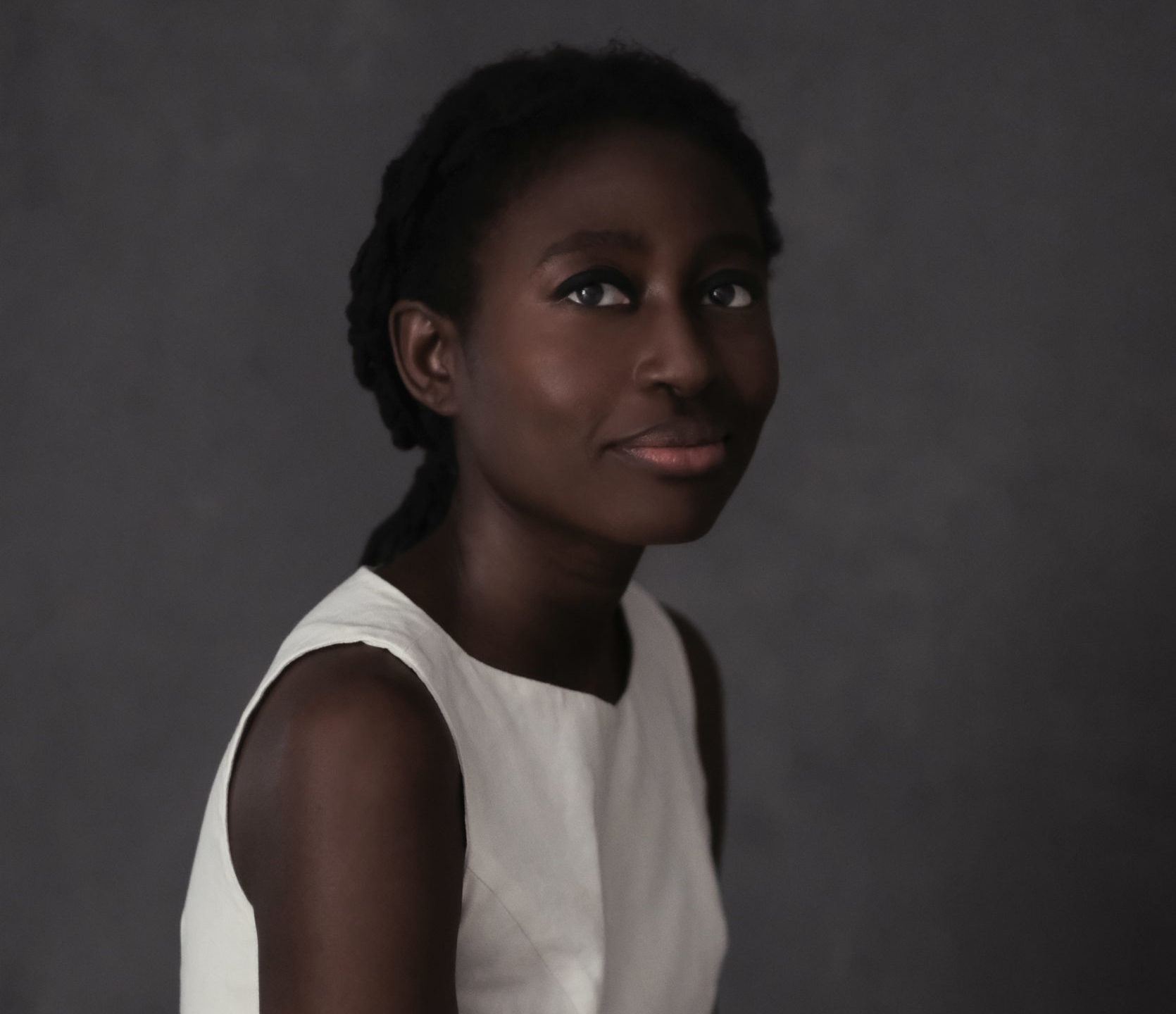
Photos by Tereza Linhartova.
This is Rough Draft, in which our favorite writers get to the bottom of their own craft. From preferred writing drinks to whether or not you really need to carry a notebook, we find out all the ways they beat writer’s block and do the work. Before curling up with Peaces, Helen Oyeyemi’s new novel about two lovers who embark on a mysterious train voyage, discover all the elements that helped her get it done.
———
JULIANA UKIOMOGBE: Describe your ideal writing atmosphere. What gets you in the mood?
HELEN OYEYEMI: I tend to write in bed, so lots of pillows are just the thing. I’d also want to get an appropriate playlist going (but played through loudspeakers, not headphones).
UKIOMOGBE: Do you eat or drink while you write?
OYEYEMI: Tea. So much tea! Matcha, mint tea, and kombucha. There’s nothing quite like celebrating chapter completion with kombucha sipped from a champagne glass.
UKIOMOGBE: Do you keep a notebook or journal?
OYEYEMI: I do. It’s full of sentences—sometimes paragraphs—for things I want to write soon. Snippets to be linked later. And when I come across lines in books and articles that I really want to keep thinking about, I add them into the mix. When I look back at the notes from previous years and see when new thoughts were introduced it feels like a more accurate snapshot of what was going on at the time than a diary entry would be.
UKIOMOGBE: What’s your favorite quote?
OYEYEMI: For now let’s say it’s this, from Ezra Pound’s translation of Li Bai’s Exile’s Lettter:
…and if you ask how I regret that parting?
It is like the flowers falling at spring’s end,
Confused, whirled in a tangle.
What is the use of talking! And there is no end of talking—
There is no end of things in the heart.
UKIOMOGBE: Whose writing do you always return to?
OYEYEMI: There’s something about the Song of Songs that keeps me coming back for more. And it’s the same story with the Book of Job. For a long time, I thought a person was either inclined Song of Song-wards or Book of Job-wards (temperamentally, I mean). In my teens, I was Team Job, and in my twenties, I was Team Songs; in my thirties, I’ve resigned myself to the fact that I go both ways. But of course, the greater question is, who wrote those books?
UKIOMOGBE: What books did you read as a kid/teen? Have your thoughts about the writers changed?
OYEYEMI: I think a few of the books I loved back then, and still love, managed to find their way to me at exactly the right age to grow with me. The Chronicles of Narnia and The Catcher in the Rye, for instance. I can picture those books presenting themselves to a person’s imagination too early or too late.
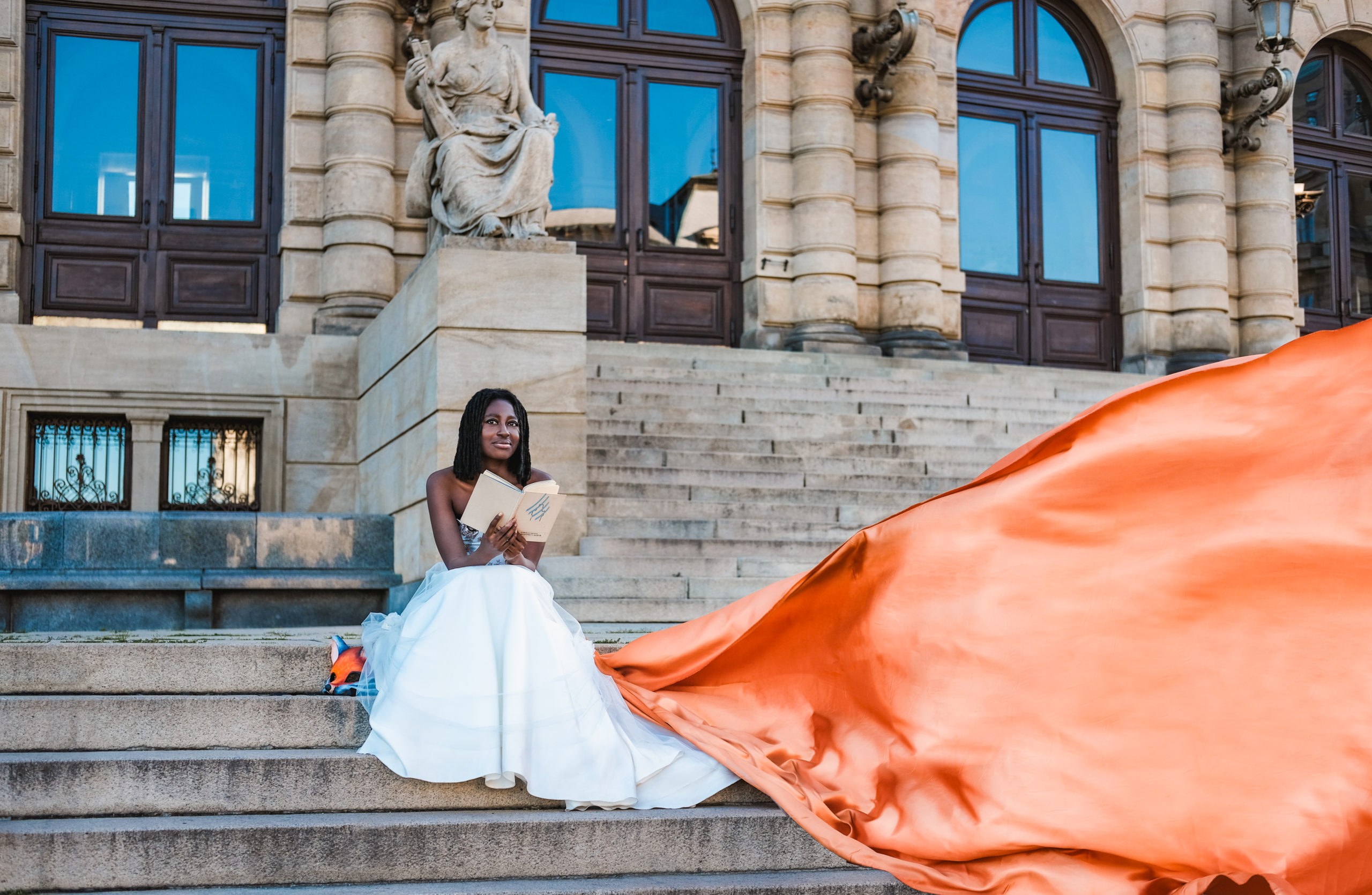
UKIOMOGBE: Do you read while you’re in the process of writing? Which writers inform your current work the most?
OYEYEMI: When I’m in the daily writing phase of a book I get a bit too intense about influence to read very much, and I’ll usually watch films and TV if there’s still time any time left at the end of the writing day before falling asleep. If there are any writers that Peaces is trying to have a bit of back and forth with, Can Xue is one (particularly her novels Love In The New Millennium and The Last Lover) and Carl Jung is another.
UKIOMOGBE: How many drafts of one piece do you typically write?
OYEYEMI: One, but it’s quite a mission to get it into a state where I could even think of it as a draft.
UKIOMOGBE: What would the title of your memoir be?
OYEYEMI: In Czech, I think it would have to be Kolemjdouci. (In English, Passerby.)
UKIOMOGBE: Who’s your favorite screenwriter?
OYEYEMI: Eight years into K-drama addiction—and having watched K-dramas that feature characters who are K-drama writers—I’m beginning to understand that the big writing name attached to any project often collaborates with co-writers. So when I say I love a Kim Eun-sook drama or a Hong Sisters drama, it seems I’m under the spell of a number of writers allied to a particular sensibility. If it’s the Hong Sisters, I’m guaranteed to have cried all the tears I have in my body by the final episode of the story. Crying whilst laughing: the soul equivalent of being tickled with aggressive delicacy. I’d recommend Hotel Del Luna—I think it’s still on Netflix. With a Kim Eun-sook, the aesthetic and emotional terrain is quite different… more billows of steam and stretches of black ice. I thought I couldn’t love any TV show more than I loved Kim Eun Sook’s Goblin, and then last year she came back with The King: Eternal Monarch. I think that one’s still on Netflix too.
UKIOMOGBE: Do you consider writing to be a spiritual practice?
OYEYEMI: At times, writing puts an interesting sort of strain on the senses that can be similar to some spiritual activity, but personally I feel it’s more akin to inner space travel than finding a way out of the existing framework.
UKIOMOGBE: Which writers would you choose to have dinner with, living or dead?
OYEYEMI: In my current mood, I’d ask Emily Dickinson, Christine Chia, Kelly Link, Zdeněk Jirotka, Mariana Enriquez, Sara Gran, Wislawa Symborska, Ali Smith, Heather O’Neill, Catherine Chung, Olga Tokarczuk, and Marina Endicott. Remarkable tableside chat aside, I also somehow have a notion that between us—plus friends and friends of friends we’d all call in—we’d work out how to give Covid-19 such a good scare that it realizes it should never have even dreamed of starting anything.
UKIOMOGBE: Can great writing save the world?
OYEYEMI: Great writing does so many indescribably essential things. However, I feel like our relationship with that which is written is disturbing enough that awarding words the power to save the world also means awarding them the power to destroy the world. So I’d strongly prefer trying every conceivable non-violent method of saving the world before attempting the great writing route. That wasn’t an answer, was it? I suppose the short answer would be that I don’t know if writing really can acquire superpower status, and I’m very okay with never finding out.

